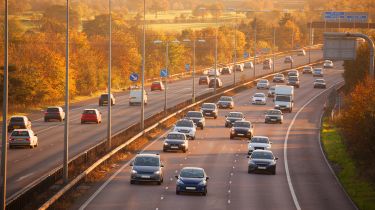Covid-19: what it means for motorists and the car industry
Everything you need to know about how Covid-19 affects cars, motorists and the car industry in the UK

England is gradually coming out of its third national Covid-19 lockdown, with a phased lifting of restrictions having begun on 8 March and due to be completed on 21 June if all goes to plan. Wales, Scotland and Northern Ireland have their own similar measures in place.
As such, there are firm restrictions on what people can do and who they can meet with, but how does this impact drivers and the car industry as a whole?
Car dealers reopening on 12 April
Having been allowed to briefly reopen following the second national lockdown in November 2020, car dealerships across England - and indeed the rest of the UK - gradually had to close again as Tier 3 and Tier 4 local lockdown restrictions were rolled out in stages across the country.
Having been forced to keep their doors shut under the third national lockdown, the Government has now confirmed dealers can reopen on 12 April. This means cars can once again be bought in person at showrooms, rather than just online via click and collect.
Mike Hawes, chief executive of the Society of Motor Manufacturers and Traders (SMMT), said: “The past year has been the toughest in modern history and the automotive sector has, like many others, been hit hard. However, with showrooms opening in less than a week, there is optimism that consumer confidence - and hence the market - will return.”
He added: “A strong and sustainable market is possible if customers are attracted to the choice and competitive offer the industry is able to provide within the safest of showroom environments.”
Can I still drive my car?
Whereas under full lockdown restrictions it's only been legal to use your car for one of a few essential reasons, such as shopping for essentials or commuting, the list of approved reasons for driving somewhere is much less specific and far more broad from 12 April.
Guidance to stay at home has ended, with all non-essential retailers - including car dealerships - to reopen, along with hairdressers, outdoor restaurants, pub gardens, gyms, libraries, theme parks and a host of other facilities. Furthermore, weddings can take place with up to 15 people and funerals with up to 30.
As such, there are many legal reasons for someone to be in their car and traffic numbers are likely to rise.
Garages to stay open
Although the first lockdown saw an MoT extension implemented, garages nevertheless remained open due to their classification as essential businesses.
As with the second lockdown, this third lockdown saw garages remain open for repairs, servicing and MoTs. This means no MoT extension has been introduced and garages are still open as the Government's roadmap moves along.
Car production to continue
The first lockdown saw car production grind to a halt in the UK and across Europe, with manufacturers having to make their factories Covid-secure before being able to reopen.
The second time around, though, the Government recognised that factory employees could work from home and said that manufacturing should continue, as it was “essential to keeping the country operating and supporting vital sectors and employers”.
As such, car production carried on during the third lockdown as well, despite significant year-on-year declines continuing to cause worry in the industry.
Driving lessons and tests suspended
The Driver and Vehicle Standards Agency (DVSA) confirmed driving lessons and theory tests will be allowed to resume on 12 April, while practical tests will restart on 22 April.
Leaner drivers have been warned, however, that there is going to be a huge backlog when it comes to booking driving lessons and tests, meaning new drivers may have to wait even longer to pass their test.
Has lockdown caused fuel shortages?
There were no petrol or diesel shortages during the first, second and third national lockdowns. Whereas supermarkets had to take measures to prevent the panic buying of essential items during the first lockdown, fuel sales plummeted due to people travelling less. The result was a drop in petrol and diesel pump prices, which still haven’t fully recovered to pre-Covid levels.
Motorists are advised to use the provided gloves when filling up at petrol stations, after which they should use hand sanitiser.
What are the best selling cars in the UK in 2020? Click here to find out...
Find a car with the experts





